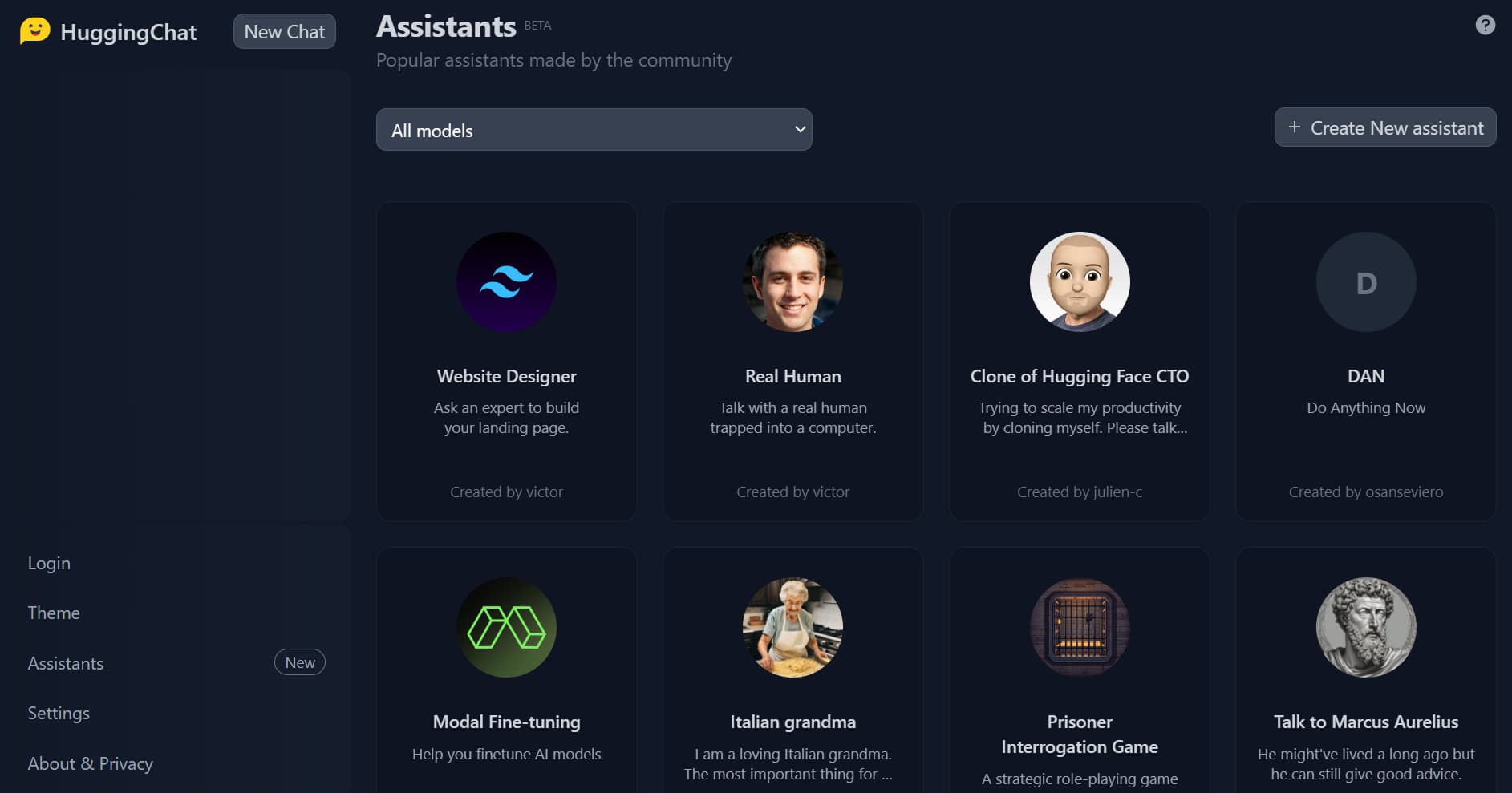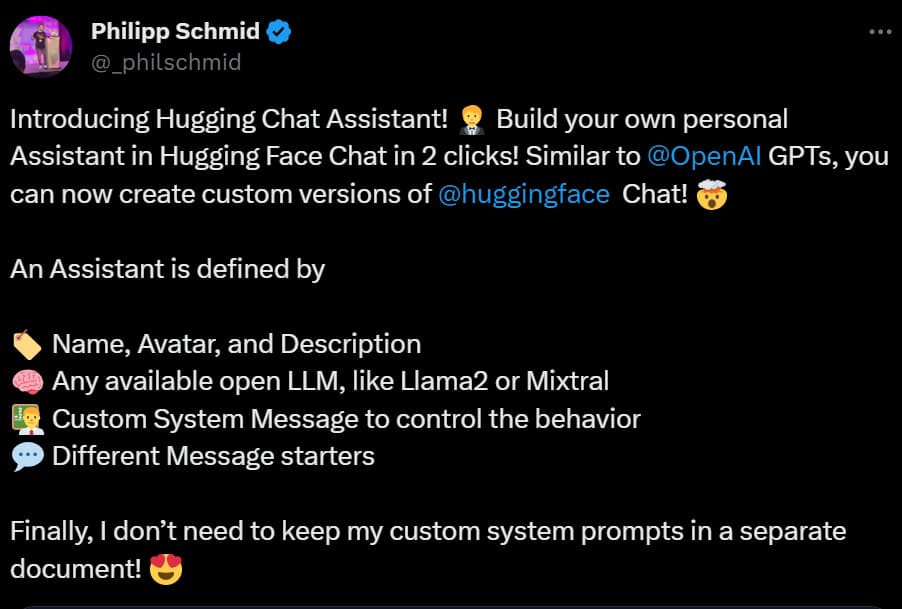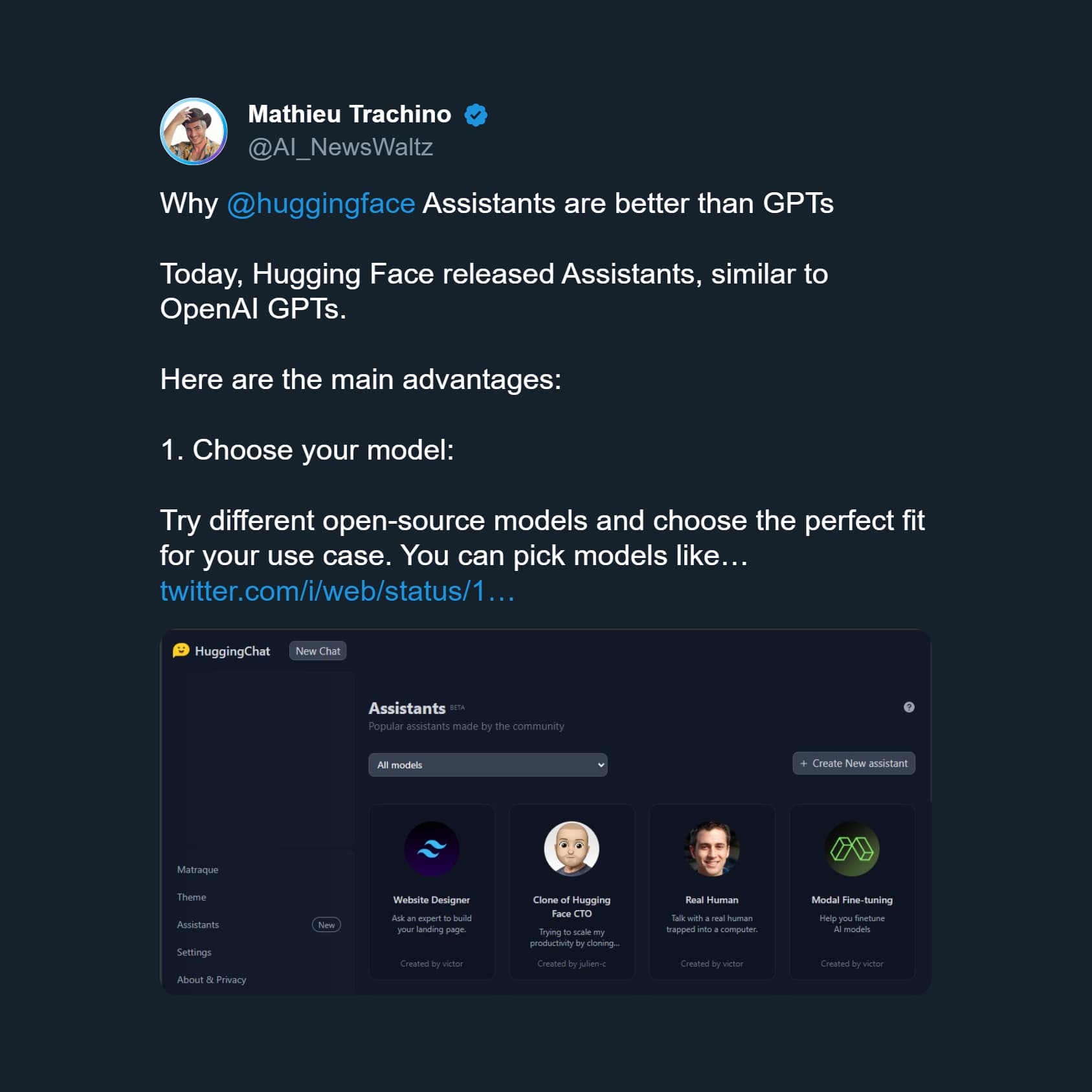Hugging Face, known for its open-source hub for AI models, recently introduced Hugging Chat Assistant, an alternative to OpenAI’s GPT Store.

With this latest update, users can easily develop their customized chat assistant in just two clicks. The functionality mirrors that of OpenAI’s GPT models, offering a seamless and user-friendly experience.
OpenAI’s custom GPT Builder is accessible through paid subscriptions: ChatGPT Plus ($20/month), Team ($25/user/month paid annually), and Enterprise (variable pricing). The hugging face’s free Chat Assistants eliminate the financial barrier, allowing users to create customized AI chatbots without subscription fees.
Phillip Schmid, who holds the position of Hugging Face’s Technical Lead & LLMs Director, shared an exciting update on the platform X, formerly known as Twitter.
In his post, Schmid detailed that users now have the ability to effortlessly create their own personalized Hugging Face Chat Assistant with just two clicks.
Schmid emphasized the simplicity and accessibility of this feature, making it easy for anyone to harness the power of AI chat assistants.
He drew comparisons between these new capabilities and those offered by OpenAI’s custom GPTs, highlighting the competitive edge of Hugging Face’s platform.
Hugging Chat Assistant stands out not only for its cost-free nature but also for its fundamental distinction from GPT Builder and GPT Store.
Unlike the latter tools, Hugging Chat Assistant operates independently without relying on OpenAI’s proprietary large language models (LLM) like GPT-4 and GPT-4 Vision/Turbo.
While GPT Builder and GPT Store are built upon OpenAI’s proprietary technology, Hugging Chat Assistant offers an alternative approach that doesn’t hinge on these specific models.
The primary difference between Hugging Chat Assistant and the GPT Builder/GPT Store lies in their dependence or independence on OpenAI’s proprietary large language models.
Users of Hugging Chat Assistant have the flexibility to select from various open-source LLMs to empower the intelligence of their AI Assistant.
They can choose from options like Mistral’s Mixtral to Meta’s Llama 2, tailoring their experience based on their preferences.
This aligns with Hugging Face’s philosophy of providing a diverse range of models and frameworks for users to choose from.
Just like with Hugging Chat, where users have the freedom to pick between different open-source models, Hugging Chat Assistant offers a similar customizable experience.
Some members of the open-source AI community are praising Hugging Chat Assistants, claiming they’re superior to GPTs.
Mathieu Trachino, the founder of GenDojo.ai, an enterprise AI software provider, expressed his support for Hugging Chat Assistants on X.
Trachino highlighted several advantages of Hugging Chat Assistants, particularly emphasizing the customizable nature of the underlying models.
One key aspect Trachino mentioned is the freedom users have to customize the models according to their needs.
Another significant point of praise is that Hugging Chat Assistants are available for free, contrasting with OpenAI’s subscription-based tiers.
Some advantages of custom GPTs over Hugging Chat Assistants were highlighted by him.
One notable area is the lack of support for web search and retrieval augmented generation (RAG) in Hugging Chat Assistants.
Additionally, Hugging Chat Assistants cannot generate their own logos, a capability that custom GPTs possess.
Custom GPTs leverage the power of OpenAI’s image generation AI model, DALL-E 3, to generate logos autonomously.
It’s fascinating to see how quickly the open-source community is evolving, evident in the emergence of Hugging Chat Assistants.
This development highlights the ongoing race between open-source projects and their closed counterparts like “Open” AI.
Interestingly, this progress comes shortly after the revelation of a new open-source model, Mistral’s Miqu, which is nearly on par with the performance of the closed GPT-4, previously considered the pinnacle of language models.
However, one can’t help but wonder how long this parity will last in the ever-evolving landscape of language model technology.
Related Stories:


